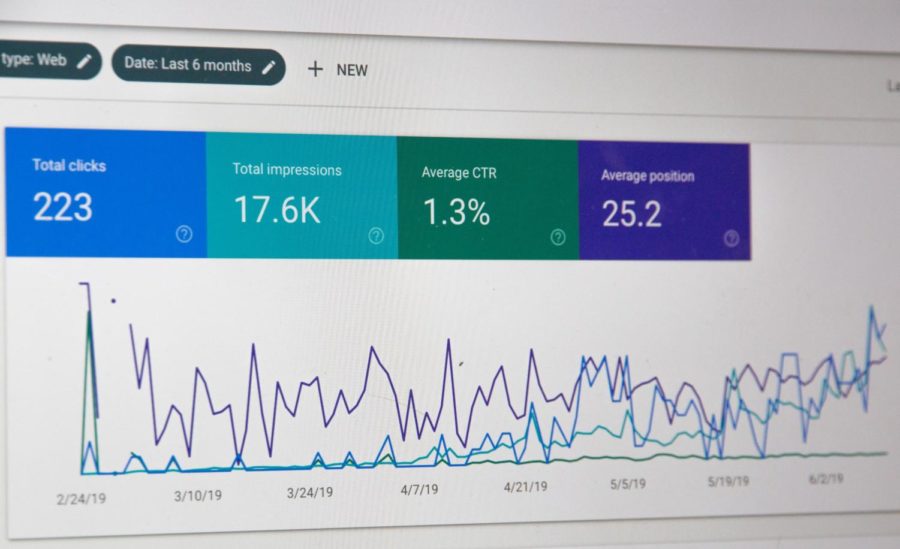Schmitt: When objective journalism becomes more about clicks
September 11, 2021
“At a time when everyone’s a journalist, you need to be an editor.”
That phrase is what stuck with me after reading “Don’t Burn This Book: Thinking for yourself in an age of unreason,” authored by political commentator Dave Rubin.
I find a considerable amount of truth in those words as the conflated term of objective journalism dwindles, leaving citizens scrambling to find the truth.
Mainstream media outlets used to be where citizens could go to get the facts of news happening locally, regionally and nationally, yet, today, objective journalism has become overtly conflated.
Journalists serve the role of ‘fact-checkers,’ using their resources to prevent the spread of misinformation. However, the spread of misinformation in the mainstream media no longer means false or deceiving information. It means information that goes against their narrative or something with which they disagree.
Instead of the high-profile fact-checkers preventing the dissemination of fake news, the readers are fact-checking the journalists. Now, you could say that inexperienced journalists should be the primary offenders of making mistakes or not conducting sufficient research to report a specific event accurately. Unfortunately, the chief offenders are the established media, the so-called ‘professionals’ who uphold objective journalism.
A prime example of this would be CNN. It is hard to forget the giant outlet’s slandering of Nicholas Sandmann, a 17-year-old at the time, attending Covington Catholic High School. CNN reporters pressed the narrative that Sandmann and his friends harassed a Native American at a pro-life rally in 2019. It turned out to be the group of teenagers harassed; Sandmann filed a lawsuit against CNN, The Washington Post and NBC Universal for the damage inflicted upon him and his reputation. CNN paid a hefty settlement but refused to apologize and admit fault.
While extreme cases like this arise on the national level, they also occur in our own communities.
The Students for 2A club at Iowa State sent a mass email about a presentation for 3D-printed firearms to students Mar. 23, creating considerable controversy among students and faculty. In response to the letter, a group of students sent a letter to Iowa State administrators, urging that Students for 2A ought to be “held accountable for the harm they have caused to students on campus.” This led to local news outlets covering the story. However, the stories lacked the objectivity and due diligence that one might expect from our “trusted” media.
The Ames Tribune was one of the outlets that covered the story. The article focused on the timeliness of the mass email sent out to students. Daniel Eisenstein, the club’s president and senior in management information systems, said the outlet never reported any factual errors, but he said the style of the reporting smeared his reputation as a student.
The primary point he was disgusted by was the articles attribution to Students for 2A website. Eisenstein provided a link to CTRL+Pew, a website group that focuses on the latest news and updates on laws and technology developments in 3D-printed firearms. Eisenstein said he uses the website as knowledgeable source for 3D-printed guns.
The Tribune decided to go further than the attribution, digging into CTRL+Pew’s Twitter account, revealing a “boogaloo” hashtag, completely irrelevant information to the story but what Eisenstein calls an intentional attack on his character. Boogaloo is an anti-government extremist movement that began in 2019, according to the Anti-Defamation League.
Eisenstein said the Tribune offered him no grace when reaching out about the hashtag. Even after explaining to the reporter that it had nothing to do with the student organization or himself, they ran it in the story anyway.
“It parallels between my case and the Carson King issue,” Eisenstein said. King became an Iowa celebrity in 2019 when he raised millions of dollars, first asking for beer money through his Venmo account and donated it to the University of Iowa Stead Family Children’s Hospital. The Register dug up racist tweets from 2016 in a “routine background check.” The irrelevancy of the information led to significant backlash from Iowans who thought it was a smear on King.
KCCI also covered the story, much more devastatingly might I add. As journalists, they must not “use quotes from sources in their stories without checking the veracity of the information and the reliability of the source,” according to a journalism textbook used by professors at Iowa State. However, KCCI’s article contained a quote that was blatantly false, said by a source that the outlet never checked the credibility of.
The so-called “expert” said that “ghost guns” are illegal in Iowa, which would suggest that Eisenstein was participating in illegal activity.
Fortunately, the article was taken down after they realized the mistake, yet that did not keep other sites from republishing the original article.
To this day, the events that unfolded in the spring still follow Eisenstein. He was never concerned for his safety, but he worries that the hit pieces written by our own local news outlets could implicate his chances at getting a job offer in the future, especially since he is seeking a career in law enforcement.
“It’s like a tattoo I can never get rid of,” said Eisenstein.
Many students and others that read the article might have already forgotten what took place, but the match was lit for Eisenstein. He said he can deal with Twitter or Reddit talking about him, but the media stories will follow him forever.
The media, even at the local level, has become less about objectivity and more about the clicks, cash and clout, not accounting for the damages and repercussions put upon dissenting views of others.

















